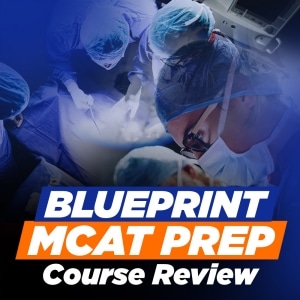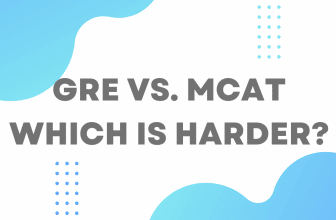

Complete List of High Yield MCAT Topics
What are the high-yield MCAT topics? Are there any topics that are mostly tested on MCAT? These questions often cross the minds of the premeds preparing to get accepted into a medical school. Remember, Medical College Admission Test (MCAT) has a lot of concepts, and you do not have a lifetime to learn every single protein and amino acid. So, what should you do to achieve a high score on MCAT? The best way is to work smarter, not harder! The test takers suggest implementing strategic learning to give your ultimate best in MCAT. A significant mistake pre-meds make during MCAT prep is paying equal time and attention to all topics. However, learning the entire curriculum during MCAT prep is impossible in such limited study time. Therefore, look for high-yield topics and spend more time learning them during the MCAT prep.
What are the high-yield MCAT topics?
There are specific topics on MCAT that are tested more frequently than others. These are known as “high-yield MCAT topics.” MCAT requires you to dive into a sea of knowledge and learn a lot of concepts. It is technically impossible to cram everything and grasp every concept. So, it would help if you familiarize yourself with the relative importance of each MCAT topic to differentiate “high-yield MCAT topics” from the low-yield ones.
There are three MCAT science sections according to AAMC guidelines1, i.e., biological and biochemical foundations (MCAT biology), psychological and sociological foundations (MCAT psychology), and chemical and physical foundations of living systems (MCAT chemistry). The fourth section (critical analysis and reasoning skills), the CARS section, focuses on analyzing the critical thinking skills you can imply in medical school. To know the high-yield MCAT topics, you can look at the breakdown of questions in different sections according to the data provided by the American Association of Medical Colleges (AAC).
Biological and Biochemical Foundations of Living Systems (MCAT Biology)
Out of the total of 230 MCAT questions, this section has 59 questions. The biology section alone includes 45 questions, implying that this section and the biology questions appearing in each section are relatively more important. The biochemistry section includes 30 questions. Therefore, MCAT topics in these sections are “high-yield.” Students must employ strategic learning and critical thinking to prepare these scientific topics in the limited study time. About 55% of this section is based on foundational concepts. In addition, 65% of the biology/biochemistry section is only based on introductory biology, making it a high-yield MCAT topic.
Chemical and Physical Foundations of Biological Systems (MCAT Chemistry)
This MCAT section also includes 59 questions. 60% are based on foundational concepts, and 5% are based on chemical interactions that govern the molecular biology of living systems. Therefore, this chem section also includes topics that are relatively high yield than general chemistry, electrochemistry, oxidation reactions, etc.
Psychological and Sociological Foundations of Biological Systems (MCAT Psychology)
Like the other two science sections, this MCAT section also comprises 59 questions. 38 are based on psychology, and 18 are on sociology. Introductory psychology constitutes 65% of the questions in this section, making it a high-yield topic. Foundational concept 7 in the MCAT syllabus makes up 35% of this section per AAMC guidelines.
Are there any less high-yield MCAT topics that I can skip?
The evaluation of your MCAT score is not based on overall test performance. Instead, most test takers focus on the candidate’s section-wise performance.
It means a poor score in one section can lead to an overall poor MCAT score. Therefore, giving more prep time to high-yield topics does not mean that you can skip the low-yield ones. For instance, organic chemistry makes up only 5% of the biology section and 15% of the chemistry section, i.e., only 11 organic chemistry questions out of 230 total MCAT questions. However, you cannot wholly skip this content category, as a lot of questions might indirectly test your organic chemistry concepts.
Similarly, there are only 18 sociology questions. Still, it does not mean you can skip this MCAT topic, as these questions are critical to your overall MCAT score in the “psychological and sociological foundations” section.
Tips for preparing high-yield MCAT topics
1. Learn smarter, not harder!
An essential factor in MCAT prep is to figure out the most tested MCAT topics and focus only on those topics. AAMC provides complete information about the topics covered in each MCAT section.
2. Make a study plan.
Create your study plan keeping in view how many hours you can take out daily for the MCAT prep over 8-12 weeks. Around 6-8 hours for 5 days per week are sufficient for the prep. But consistency is the key to success in the MCAT exam.
3. Take practice tests.
Take as many practice tests as possible. As a premed preparing for medical school, use your critical thinking skills, and learn to analyze, break down, and solve questions.
FAQs
1. What subject is the most tested on MCAT?
Biology is the most tested subject on MCAT. It comprises 65% of the biology/biochemistry section of the MCAT. According to AAMC, there are around 45 questions from the biology section, making it a high-yield topic.
2. Is physics high-yield on the MCAT?
Yes! Although there are only 15 questions from physics and it might seem low-yield. But these 15 questions are critical for your overall MCAT score in the “chemical and physical foundations of living systems” section, which is high-yield.
Conclusion
All student’s who passed the MCAT agree, learning everything with limited prep time is impossible. Therefore, the best way is to use strategic learning for content review and focus on high-yield MCAT topics to achieve the best MCAT score and get into medical school.
References
1. What’s on the MCAT Exam? AAMC. https://students-residents.aamc.org/prepare-mcat-exam/whats-mcat-exam





